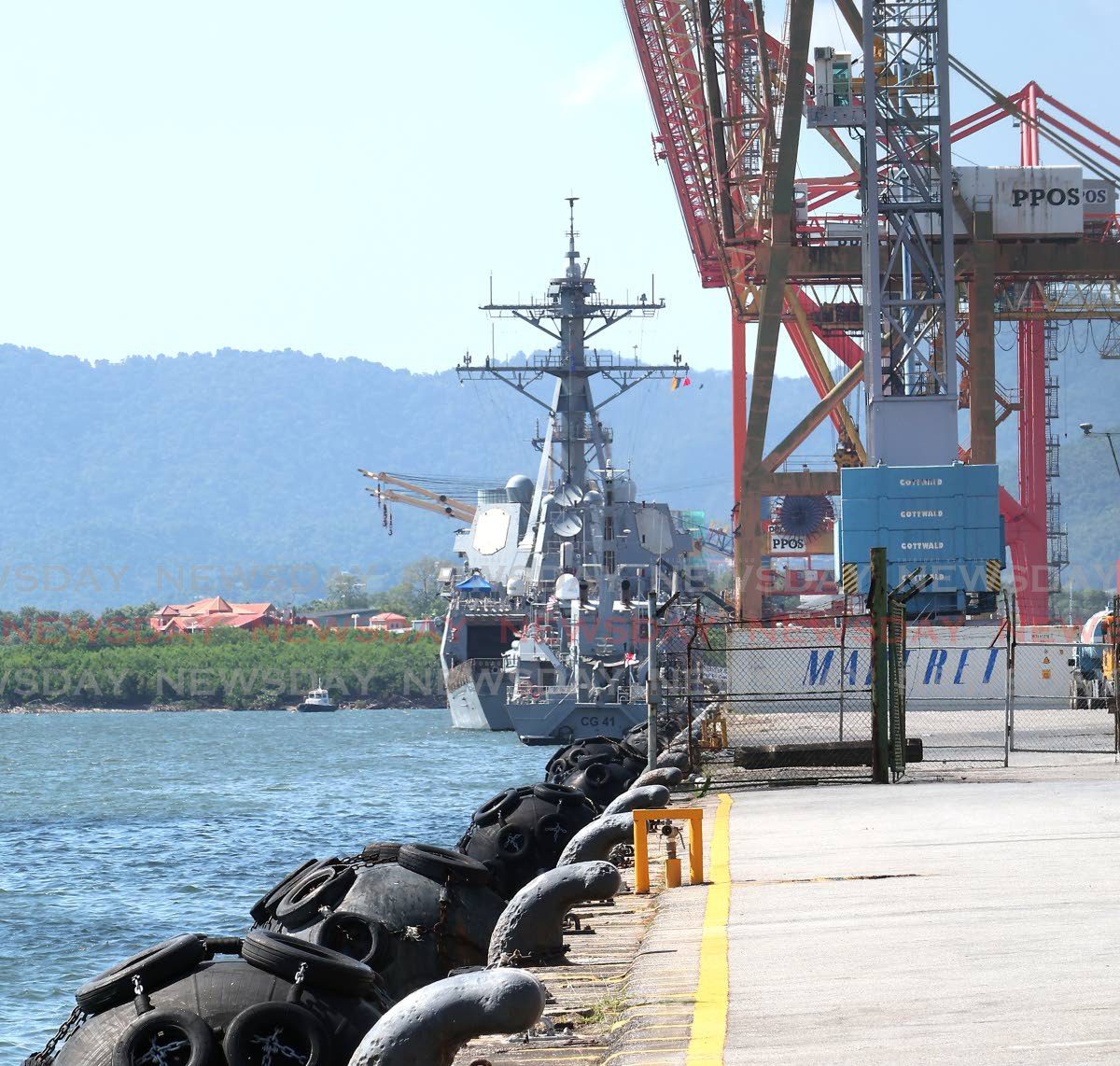The temporary docking of the USS Gravely, a United States Navy guided-missile destroyer, at the Port of Spain from October 26 to October 30 has caused significant disruptions to commercial operations and reignited discussions about Trinidad and Tobago’s (TT) delicate geopolitical position between the US and Venezuela. The vessel’s presence for joint training exercises with the TT Coast Guard led to the redirection of several cargo ships to the Port of Point Lisas, a move coordinated by the Port Authority of TT, the Port of Spain, and the Point Lisas Industrial Port Development Corporation (Plipdeco). While this mitigated extensive logistical delays, it incurred additional costs and raised concerns among business chambers about future risks. The TT Chamber of Industry and Commerce reported moderate delays in cargo clearance and increased operational costs, urging the government to implement temporary relief measures such as waiving demurrage charges and expediting time-sensitive cargo clearance. The chamber emphasized the need for improved port infrastructure and contingency planning to address vulnerabilities. Meanwhile, the Greater Tunapuna Chamber of Industry and Commerce highlighted logistical challenges and higher transport costs, warning that such disruptions could impact the Christmas season’s economic activity. The situation is further complicated by new fiscal measures set to double customs and clearance fees in January, adding to importers’ burdens. Geopolitical tensions between the US and Venezuela have also escalated, with Venezuela suspending energy agreements with TT and declaring Prime Minister Kamla Persad-Bissessar persona non grata. The Energy Chamber of TT has called for a renewed focus on domestic gas production to ensure energy security, emphasizing the need for reliable gas supplies for petrochemical plants and LNG facilities. The business community has expressed caution, warning that port disruptions, fee increases, and suspended energy deals could weaken investor confidence and challenge TT’s role as a regional energy hub.
